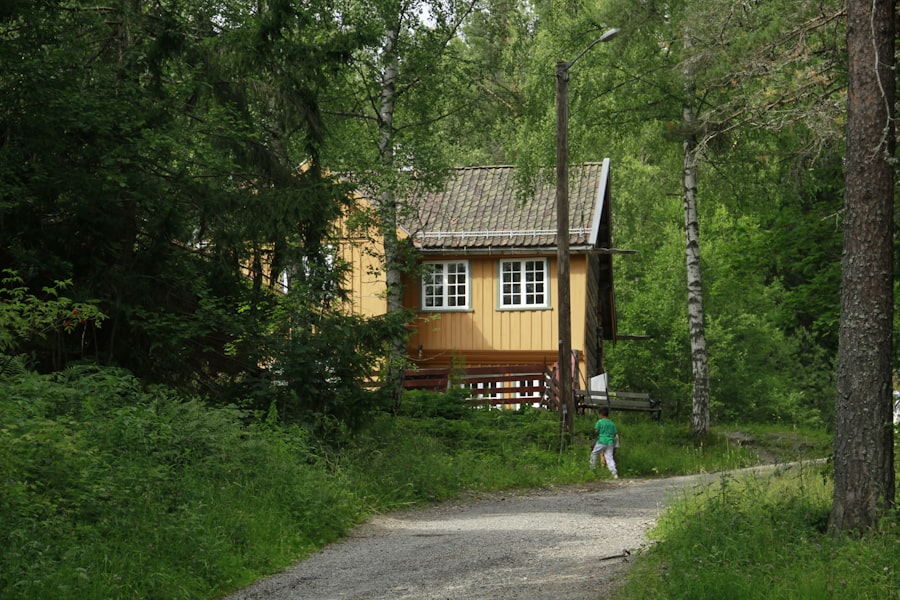Navigating a new work environment can be a daunting task, especially when it comes to understanding the nuances of a different culture. The Norway Relocation Group is here to assist you in this transition, providing invaluable insights into the intricacies of Norwegian work culture. By offering tailored support and resources, they ensure that you are well-prepared to thrive in your new professional setting.
Understanding the local customs and practices is essential for building strong relationships with colleagues and integrating smoothly into the workplace. Norwegian work culture is characterised by a unique blend of professionalism and informality, which can be both refreshing and challenging for newcomers. The emphasis on egalitarianism, respect for individual contributions, and a strong sense of community sets Norway apart from many other countries.
As you embark on your journey in this vibrant nation, it is crucial to familiarise yourself with these cultural elements to foster a successful and fulfilling career. Plan your relocation with confidence. Book a personal meeting with the Norway Relocation Group today.
Summary
- Norwegian work culture values punctuality and respect for time, so it’s important to be on time for meetings and appointments.
- There is a strong emphasis on work-life balance in Norwegian work culture, with employees encouraged to take time off and enjoy their personal lives.
- Teamwork and collaboration are highly valued in Norwegian workplaces, with a focus on collective success rather than individual achievement.
- Direct communication and honesty are key principles in Norwegian work culture, with open and transparent dialogue being highly valued.
- The concept of Janteloven, which emphasizes modesty and equality, is an important aspect of Norwegian work culture, promoting a sense of community and shared responsibility.
Punctuality and Respect for Time
In Norway, punctuality is not merely a courtesy; it is a fundamental aspect of professional life. Arriving on time for meetings and appointments is expected, and being late can be perceived as disrespectful. This cultural norm reflects a broader societal value placed on time management and efficiency.
For newcomers, embracing this principle will not only help you gain respect from your colleagues but also demonstrate your commitment to your role. Moreover, the respect for time extends beyond mere punctuality. Norwegians appreciate when meetings start and end as scheduled, allowing everyone to manage their time effectively.
This focus on efficiency fosters a productive work environment where individuals can balance their professional responsibilities with personal commitments. By adhering to these time-related customs, you will find it easier to integrate into the workplace and build rapport with your peers.
Emphasis on Work-Life Balance

One of the most striking features of Norwegian work culture is its unwavering commitment to work-life balance. In Norway, employees are encouraged to prioritise their personal lives alongside their professional responsibilities. This cultural emphasis on balance is reflected in generous vacation policies, flexible working hours, and a strong support system for families.
For expatriates, this approach can be a welcome change from more demanding work environments. The importance placed on work-life balance not only contributes to employee satisfaction but also enhances productivity. When individuals feel supported in their personal lives, they are more likely to be engaged and motivated at work.
As you settle into your new role, take advantage of the opportunities for flexibility and self-care that are available to you. This balance will ultimately lead to a more fulfilling experience both personally and professionally.
Importance of Teamwork and Collaboration
Collaboration is at the heart of Norwegian work culture, where teamwork is highly valued. Norwegians believe that collective efforts yield better results than individual achievements alone. This collaborative spirit fosters an environment where ideas can be freely exchanged, and diverse perspectives are welcomed.
For newcomers, embracing this ethos will not only enhance your contributions but also help you forge meaningful connections with your colleagues. In practice, teamwork often manifests in flat organisational structures that encourage open communication and shared decision-making. Employees are empowered to voice their opinions and contribute to discussions, regardless of their position within the company.
As you adapt to this collaborative environment, remember that your insights and experiences are valuable assets that can enrich team dynamics.
Direct Communication and Honesty
Norwegians are known for their straightforward communication style, which prioritises honesty and clarity. In the workplace, this means that feedback is often given directly and constructively, without the embellishments that may be common in other cultures. For expatriates, this approach can initially feel blunt or even confrontational; however, it is essential to understand that this directness is rooted in a desire for transparency and efficiency.
Embracing this communication style will not only help you navigate workplace interactions more effectively but also foster trust among your colleagues. When everyone is encouraged to speak openly and honestly, it creates an atmosphere of mutual respect and understanding. As you engage with your team members, strive to adopt this direct approach while remaining respectful of cultural differences.
Understanding the Concept of Janteloven

A key aspect of Norwegian culture is the concept of Janteloven, or the “Law of Jante.” This unwritten social code discourages individual boasting and promotes humility within the community. While it may seem counterintuitive in a competitive work environment, understanding Janteloven can provide valuable insights into how Norwegians interact with one another professionally. In practice, Janteloven encourages individuals to recognise their place within the group rather than seeking personal glory.
This cultural norm fosters a sense of belonging and unity among colleagues, as everyone is encouraged to contribute without overshadowing others. As you navigate your new workplace, keep this principle in mind; celebrating collective achievements rather than individual successes will help you integrate more seamlessly into the team.
Appreciation for Nature and Outdoor Activities
Norwegians have a profound appreciation for nature, which significantly influences their work culture. Outdoor activities are not only a popular pastime but also an integral part of maintaining a healthy work-life balance. Many companies encourage employees to engage in outdoor pursuits as a way to recharge and foster camaraderie among colleagues.
As an expatriate, embracing this love for nature can enhance your experience in Norway. Participating in team-building activities that involve hiking, skiing, or other outdoor adventures can help you bond with your colleagues while enjoying the stunning landscapes that Norway has to offer. By immersing yourself in these experiences, you will not only develop stronger relationships but also gain a deeper appreciation for the Norwegian way of life.
Embracing the Concept of “Hygge” in the Workplace
While “hygge” is often associated with Danish culture, its principles have found their way into Norwegian workplaces as well. This concept revolves around creating a warm and inviting atmosphere that promotes comfort and well-being among employees. In practice, this means fostering an environment where individuals feel valued and supported in their roles.
Incorporating hygge into your workplace can take many forms, from creating cosy break areas to encouraging social interactions among colleagues. As you settle into your new role, consider how you can contribute to this sense of comfort and community within your team. By prioritising well-being and connection, you will help cultivate a positive work environment that benefits everyone involved.
Importance of Equality and Gender Balance
Norway is renowned for its commitment to gender equality and inclusivity in the workplace. The country consistently ranks among the top nations for gender parity, with policies designed to promote equal opportunities for all employees regardless of gender. This cultural emphasis on equality creates an environment where diverse perspectives are valued and respected.
As an expatriate entering the Norwegian workforce, it is essential to embrace these values and contribute to an inclusive atmosphere. Engaging with colleagues from various backgrounds will enrich your experience while fostering collaboration and innovation within your team. By championing equality in your workplace interactions, you will not only align with Norwegian values but also help create a more equitable professional landscape.
Embracing the “Laws of Jante” in the Workplace
As previously mentioned, Janteloven plays a significant role in shaping Norwegian work culture. Embracing these unwritten laws within the workplace means recognising the importance of humility and collective success over individual achievement. By adopting this mindset, you will find it easier to connect with your colleagues and contribute positively to team dynamics.
In practice, this may involve celebrating group accomplishments rather than seeking personal recognition for your contributions. By fostering an environment where everyone feels valued for their input, you will help create a supportive atmosphere that encourages collaboration and innovation. As you navigate your new role, remember that embracing Janteloven can lead to stronger relationships with your colleagues and a more fulfilling professional experience.
Adapting to the Concept of “Fika” for Socializing at Work
While “fika” is primarily associated with Swedish culture, its essence has also made its way into Norwegian workplaces as a means of fostering social connections among colleagues. This concept revolves around taking breaks together to enjoy coffee or snacks while engaging in casual conversation. Embracing fika can significantly enhance your workplace experience by providing opportunities for bonding outside of formal meetings.
As an expatriate, participating in these social breaks can help you build relationships with your colleagues while also allowing you to unwind from the demands of work. By taking part in fika sessions, you will not only immerse yourself in Norwegian culture but also create lasting connections that can enhance collaboration within your team. In conclusion, understanding Norwegian work culture is essential for anyone looking to thrive in this unique environment.
The Norway Relocation Group stands ready to support you on this journey by providing resources and guidance tailored to your needs. Additionally, if you’re keen on mastering the language that underpins these cultural nuances, consider enrolling in one of the Norwegian courses at the NLS Norwegian Language School in Oslo. These courses will equip you with the linguistic skills necessary to navigate both professional and social interactions effectively while deepening your understanding of Norwegian culture as a whole.
Embrace this opportunity to enrich your experience in Norway as you embark on this exciting new chapter in your life!

